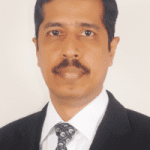A Local-Global execution model is one where the delivery execution is shared between two different teams located in different geographies and time zones – a team located near the customer site (local) and the other one is located in a lower-cost region (global). Global engineering service providers deploy large teams of local nationals across various continents. Based on customer location, the team closest to customer base becomes the local team and the larger and less expensive talent pool elsewhere becomes the global team.
Such a “local-global” team structure offers multiple advantages to an organization, typically organizations that require a vital mix of domain knowledge, engineering skills and customer understanding. A pure local team, albeit high on capability is expensive while a purely global one, while offering cost and other advantages may not have the necessary capability and impact. Along with the obvious round-the-clock operations, the Local-Global teaming approach offers the advantages of both local and global models.
A local team brings in local experience and competency; immediate responsiveness and most importantly, communication & cultural nuances of a particular customer geographic location. This team needs to be challenged by increasing complexity of work, challenging and engaging assignments and responsibility & ownership. On the other hand, a global team brings in cost reduction through globalization; quick scalability and large pool of talent with diverse capability. Learning, growth and empowerment are the triggers for performance for this team.
To make Local-Global successful, there are some key levers that include
• Talent Management
a. Hiring a new employee
b. Cross training
c. Continuous knowledge transfer and Continuous Development
d. Employee engagement and retention
• Cross Cultural Collaboration
a. Communication and Co-ordination to overcome Cultural Hurdles
Read on to find out more about Talent Management for Local-Global Delivery from Niketh Sundar, our Senior VP of HR.
